My Personal Renaissance of Poetry
A Des Moines poetry festival transformed how I feel about the genre
I’ve always struggled to connect with poetry.
It feels strange to say that as such an avid reader and writer. Not a single poem in high school English class lit a fire behind my eyes; my attempts at writing verse fell flat. Don’t get me started on the exhaustion I felt taking a class dedicated to Paradise Lost my junior year of college.
However, the more I learn about the complex structures of a poem, the more I’m amazed by the wordsmiths constructing vast worlds of wonder within a verse. I find myself uncovering the diversity of forms I had no clue existed. I’m excited by the angles poets are able to take when exploring the same themes as my beloved creative nonfiction and memoir.
My feelings about poetry bounced around in my head as I arrived at Mainframe Studios in downtown Des Moines last Friday for the Poetry Palooza festival.
The event, inspired by the Des Moines National Poetry Festival that last occurred in 2004, was put on by Poetry&, Humanities Iowa, Mainframe Studios, Franklin Jr. High Event Center, and the Iowa Poetry Association. Mainframe Studios made for the perfect venue. The building's exterior is a geometric amalgam of color at which I think I let out an audible “whoa” when I first drove by. Inside lives three floors of artist studios, with everything from an authentic old fashioned letterpress to a creature effects artist.
My first time at Mainframe Studios was marked by an artistically transformational experience in the aptly titled “Big Room,” where six poets used performance to alter the way I view poetry.
1. Matt Mason - Nebraska Poet Laureate
The reading opened with Nebraska Poet Laureate Matt Mason. Coming to Des Moines for Poetry Palooza meant coming full circle in his writing career. Mason was working in Des Moines after college when he began focusing more on poetry. Attending the Des Moines National Poetry Festival inspired him to return to school to study poetry.
Mason read from his most recent book, “At the Corner of Fantasy and Main: Disneyland, Midlife and Churros.” This collection explores the passage of time in relation to a place that has recurred in key moments of his life: Disneyland. He aches to understand his feelings around aging, his father, and his daughters in a tender, sympathetic way. He brilliantly explained the relationship between what drew him to using Disneyland as a motif to understand himself:
“Poetry teaches us why we’re freaking out about the weirdest things sometimes.”
Mason ended his time with a poem written about his daughters. In it, he begs his daughters to trust him over whatever delinquent, intoxicating teenage boy comes driving down the street, imploring them to see the motives of the teenage boy the way he’s able. From the first word of the poem, Mason set his book down and began reciting from memory. It struck me that this poem — the poem in which lays his heart out for his children — was the only poem he didn’t read directly off the page.
2. Caryn Mirriam-Goldberg - Kansas Poet Laureate
“Poetry has knocked down walls, helped me get beyond cages of my own making.”
Kansas Poet Laureate Caryn Mirriam-Goldberg began her reading with this quote, and I felt the entire world of writing open in front of me. Inherent to the complexity of poetry, the devices and structures and rhythm, is the idea of the writer as constructor. We build the worlds that break down others.
I felt a corporeal peace settle over me as Mirriam-Goldberg read. Her voice is fluid, buttery, the voice you hope answers the phone when you just need a chat or the kind customer who makes your job easier. Her poetry plays with time in a way I didn’t know was possible. Time spills over and under itself, like the wavy force of a tide moving in and out. Moments deep from the past and moments still felt today conversed across lines, not occurring at the same time as much as checking in with one another from their perspective spaces.
Near the end of the reading, Mirriam-Goldberg described her pride in knowing that a close friend read one of her poems each day to his wife as she passed away from Alzheimer’s Disease. The moment called out to every person who has ever written a word, sharing a hope that drives us all.
“That, to me is the pinnacle of success. It means more to me than any award.”
3. Deb Marquart - Iowa Poet Laureate
As Diane Glass introduced Iowa Poet Laureate Deb Marquart, I prepared to feel an opening in the zeitgeist that would let me inside a knew breadth of knowledge.
“Deb Marquart is the teacher we all wanted when we were learning poetry,” Glass said. She ended up being the exact teacher I want today as I’m learning a new relationship to poetry.
Marquart’s poetry is informational, studious, investigative. She’s spent time in North Dakota in towns touched by the oil industry. Her poetry explores the social, economic, and physical effects the discovery of a large oil deposit in the area. As a primarily nonfiction writer myself, the idea of exploratory and research-based poetry is an ideal I didn’t realize I hoped to incorporate in my own work. The lyricism leads us to understand the emotional effects of the natural world or the political strife; it posits to the world that each piece of research leads to a human in the end.
Marquart read a section of a book length poem that continued to look into the North Dakota area. I’ve long known that a poem could be as long as a book (did I already mention my fear of John Milton?), but it’s a feat that amazes me each time it comes into my purview. To be able to keep the structure and themes and rhythm flowing for that long is a level of discipline I aspire to. Marquart’s thoughts on her “why” behind creating this type of project indicates that she sees what an undertaking it is, as well.
“This may be the most foolish thing I’ve ever done.”
4. Christine Stewart-Nuñez - South Dakota Poet Laureate
Christine Stewart-Nuñez is no stranger to difficulty. Her older son has a rare form of epilepsy that has disabled him; she became pregnant with her younger son after four miscarriages. These are the type of experiences we imagine driving an artist to create, to understand the why’s that can never be understood.
The exploration of how these events have shaped her in conversation with the idea of her writing as a response to art results in a thoughtful, structurally intriguing work of poetry.
Stewart-Nuñez is married to an architect. She talked about how she is the creator of worlds with words, and he is the creator of worlds with material. The foundational elements of art was evident in her poetry, in the way she’s always writing about creation even if it’s not straightforward. She spoke of art pieces with such vivid description that I could see them right in front of me. She wrote the structure of her book of poetry as forming rings, beginning with the specific and circling out into the broad, a conception I had to sit and ponder. I am enthralled by ideas that leave me pondering.
I was particularly moved when Stewart-Nuñez wrote about her husband having drawn blueprints for a home owned by Jeffrey Epstein. The guilt he felt, the confusion about what he had unknowingly done. She handled the moment with such grace, giving her husband the space to own up that he may have contributed to something evil, but the kindness to note that intent is everything and blame is unwarranted. Art that explores this line of humanity, the nuances of trying to be good, is the most interesting type of art to me.
One of the last lines of Stewart-Nuñez’s last poems was so touchingly spiritual, I felt my heart beat faster. She wrote of the night before she gave birth to her baby, when she had a dream that her sister, who had passed away long before, placed her baby in her arms, telling her to take care of him.
That moment can only live on in perpetuity in a poem.
5. Caleb “The Negro Artist” Rainey
Caleb Rainey’s smiling face on the marketing poster is originally what drew me to Poetry Palooza.
Caleb and I worked together at Mosley’s BBQ in Iowa City when we were in college. A steady drone of Blues and Jazz music filled the restaurant as we served craft beer and South Carolina-style barbeque to rowdy students and hipster faculty. I’ll never forget the time Caleb started clapping along to one of the groovier songs, and suddenly the entire restaurant was clapping and jamming with him as he bopped in the middle of the restaurant.
He’s since wrapped up his server’s apron and now writes and performs full time, as well as holding writing workshops for youth. As his career has so amazingly taken off, Caleb’s vibrant energy hasn’t changed, even as he’s writing about subjects such as race relations and heartbreak. I heard his vocal affirmations for each of his fellow poets as they read, and once he got on stage, he invited the audience to dive deep into this poetry experience with him. His performance is a conversation. You could see that the moment before he would utter the first word of a poem, a space inside of him opened up from which he channeled a deep current of the honest emotion it took to produce the work. I was most enthralled by his call and response poem, in which he uses the game “Taboo” to ask the audience to identify the hard truths about race in the United States.
Diane Glass’s introduction of his work captured my entire spirit during his performance:
“He tells us, ‘look, you have power.’ And I believe him.”
6. Akwi Nji
Akwi Nji started her reading by saying that she “makes things and encourages others to make things.” This sentence felt like a call to a creative energy that vibrated through the room, an energy that would take on a life form I felt in every inch of me.
I never knew a poetry reading could make me feel the way Nji’s reading made me feel. She read work from her spoken word album, framed by the music playing from the speaker behind her; a touch of hip hop, a touch of electronic, a touch of R&B. She wasn’t speaking to the music; the music was playing off her words, a call and response between human and instrument. She normally performs with a band, and I can only imagine the fire that connection forms.
One of Nji’s poems asks the audience to vibe with her, and the audience must. This is where I feel art is at its highest power; sitting within a moment with the creator, giving and receiving the energy of work, hearts changing and minds widening. Nji stepped back and forth to her music, eyes closed, soft smile ever present, feeling her art through every inch of her.
She brought up the fact that she had quit writing in the summer of 2020, after she was asked why she hadn’t posted on Facebook during the protests following George Floyd’s murder. Had these people not been reading her writing the last two decades? Nji felt like she could no longer write about darkness and tragedy. I often think about this idea of writing as a result of happiness; will what I have to say with a full heart matter as much as what’s written from a broken place?
As I sat mesmerized by Nji, an unceasing smile that followed me all the way back to my car, a joy felt in the pit of my stomach answered my question: it matters just as much.
The Midwest Creative is a proud member of the Iowa Writers Collaborative. Please consider subscribing to my colleagues’ columns as they do important work across the state of Iowa.
Laura Belin: Iowa Politics with Laura Belin, Windsor Heights
Doug Burns: The Iowa Mercury, Carroll
Dave Busiek: Dave Busiek on Media, Des Moines
Art Cullen: Art Cullen’s Notebook, Storm Lake
Suzanna de Baca Dispatches from the Heartland, Huxley
Debra Engle: A Whole New World, Madison County
Julie Gammack: Julie Gammack’s Iowa Potluck, Des Moines and Okoboji
Joe Geha: Fern and Joe, Ames
Jody Gifford: Benign Inspiration, West Des Moines
Beth Hoffman: In the Dirt, Lovilla
Dana James: New Black Iowa, Des Moines
Pat Kinney: View from Cedar Valley, Waterloo
Fern Kupfer: Fern and Joe, Ames
Robert Leonard: Deep Midwest: Politics and Culture, Bussey
Tar Macias: Hola Iowa, Iowa
Kurt Meyer, Showing Up, St. Ansgar
Kyle Munson, Kyle Munson’s Main Street, Des Moines
Jane Nguyen, The Asian Iowan, West Des Moines
John Naughton: My Life, in Color, Des Moines
Chuck Offenburger: Iowa Boy Chuck Offenburger, Jefferson and Des Moines
Barry Piatt: Piatt on Politic Behind the Curtain, Washington, D.C.
Macey Spensley: The Midwest Creative, Norwalk
Mary Swander: Mary Swander’s Buggy Land, Kalona
Mary Swander: Mary Swander’s Emerging Voices, Kalona
Cheryl Tevis: Unfinished Business, Boone County
Ed Tibbetts: Along the Mississippi, Davenport
Teresa Zilk: Talking Good, Des Moines
To receive a weekly roundup of all Iowa Writers’ Collaborative columnists, sign up here (free): ROUNDUP COLUMN
We are proud to have an alliance with Iowa Capital Dispatch.





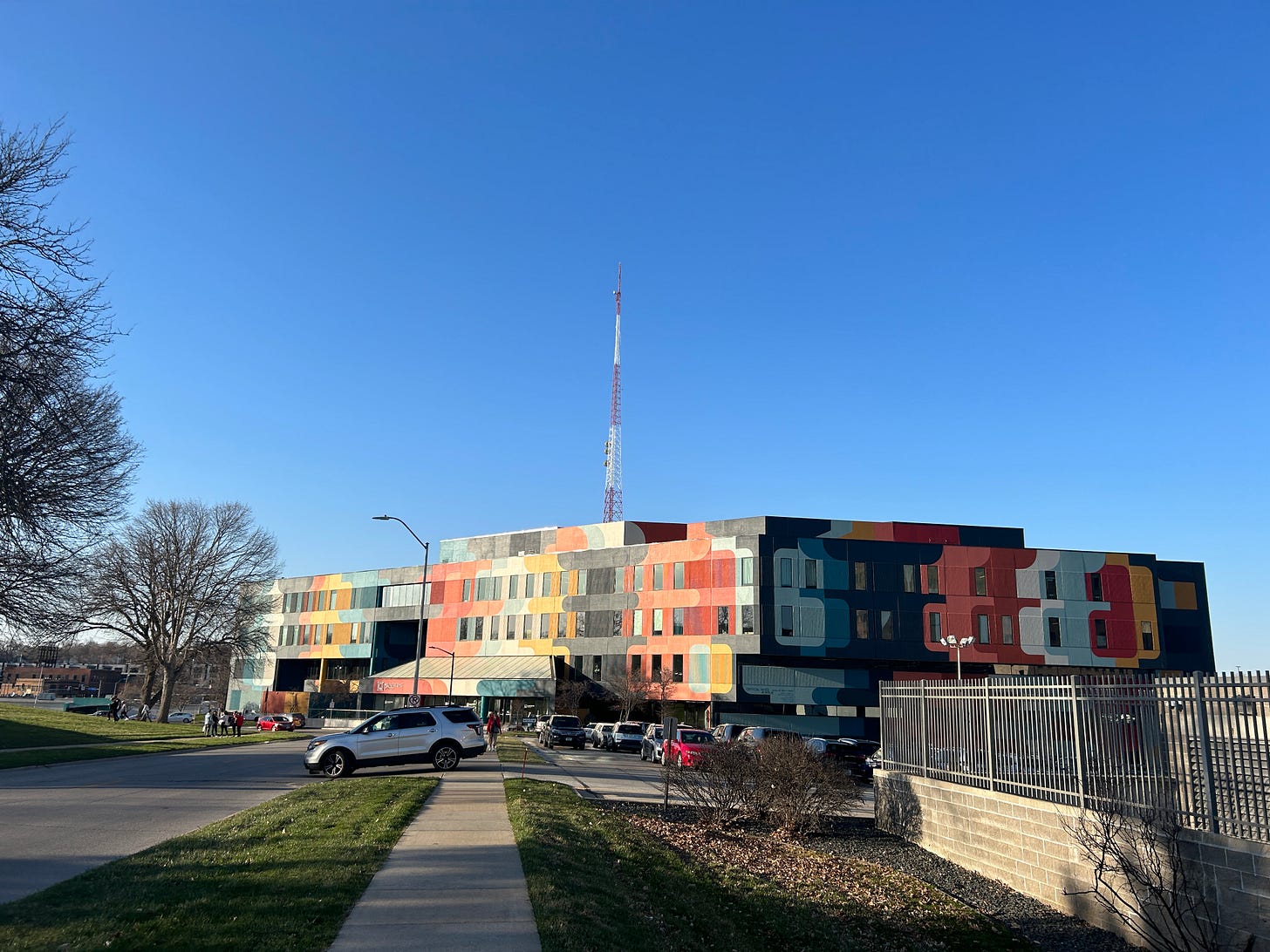

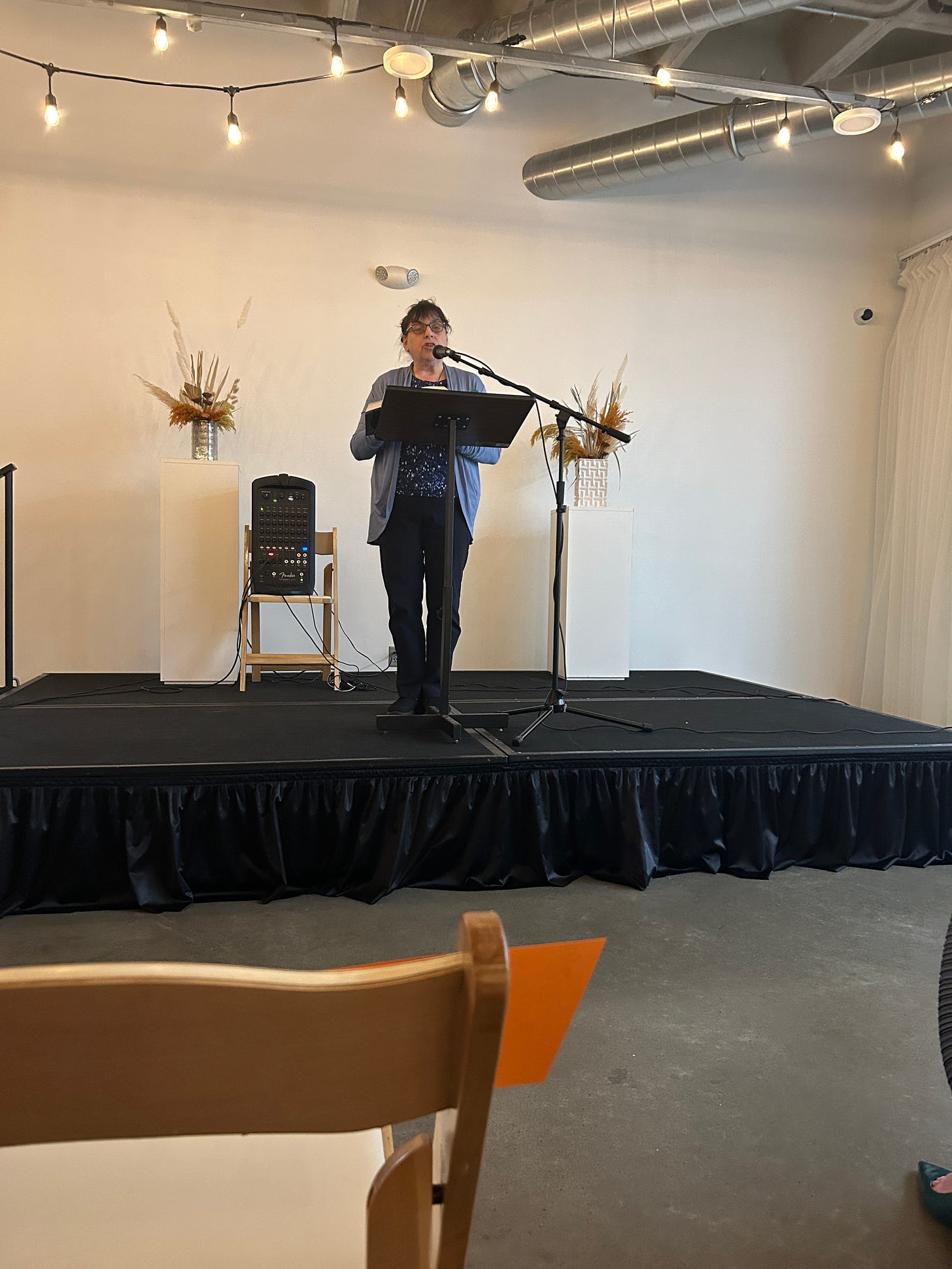

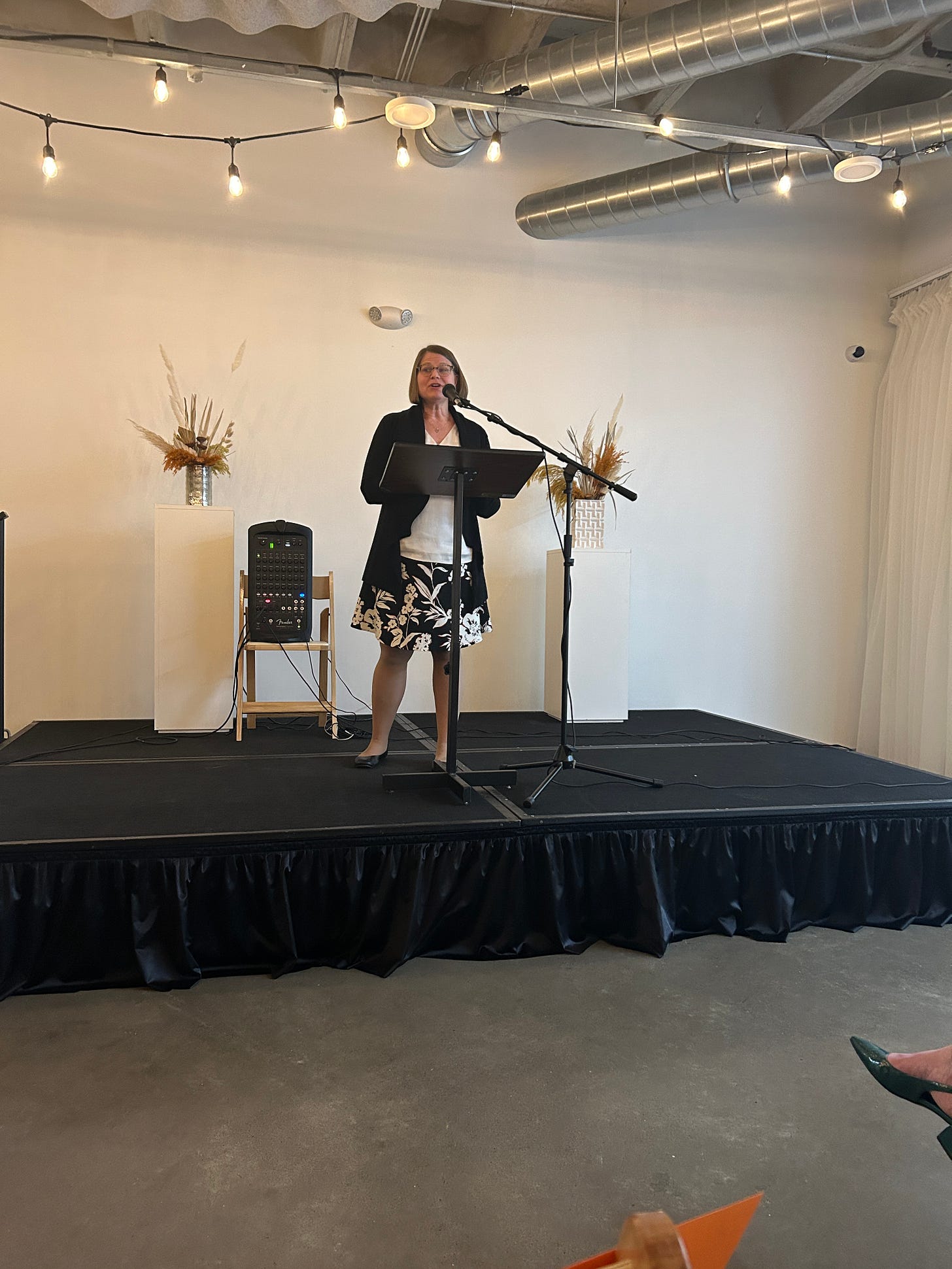
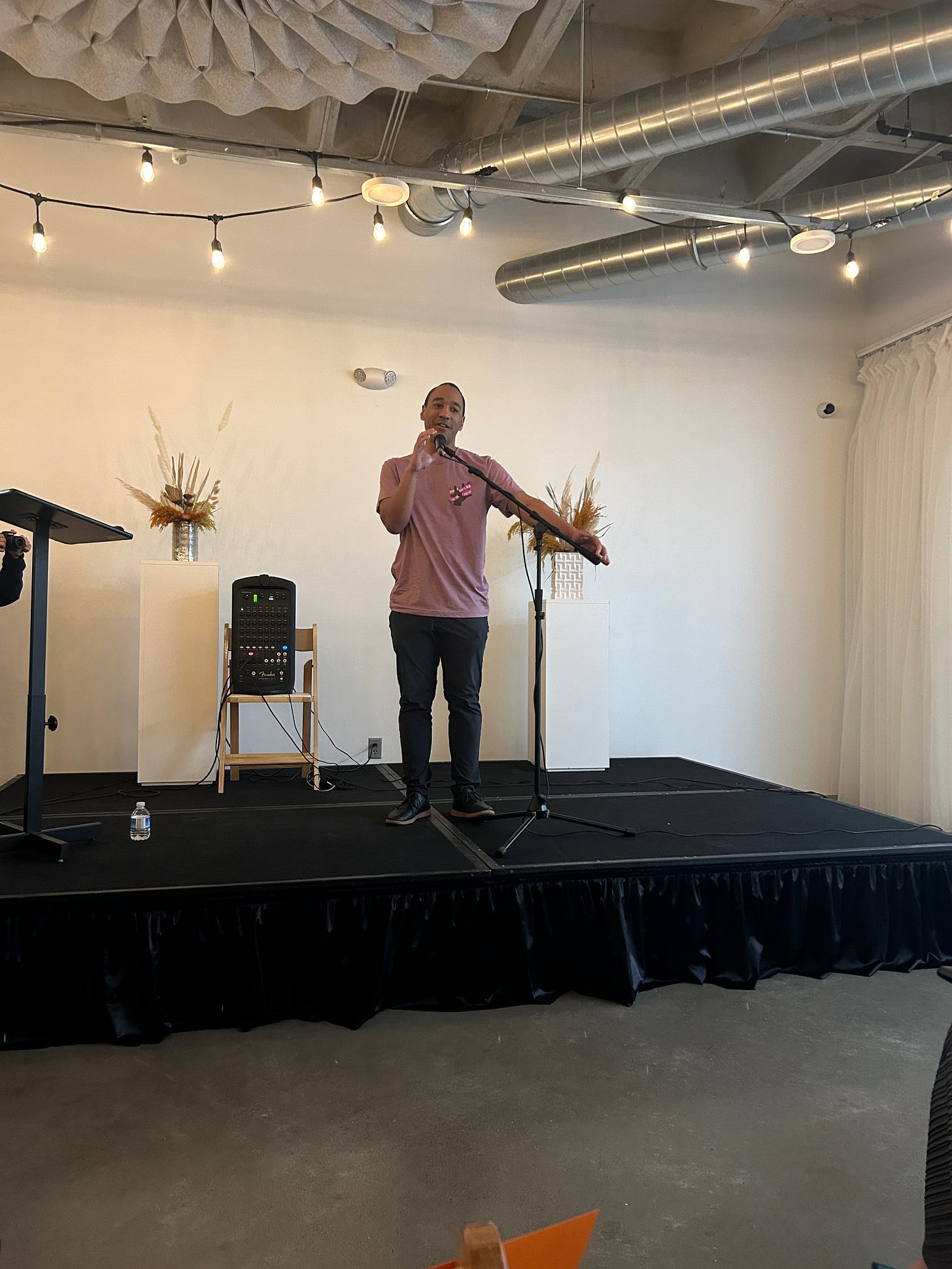
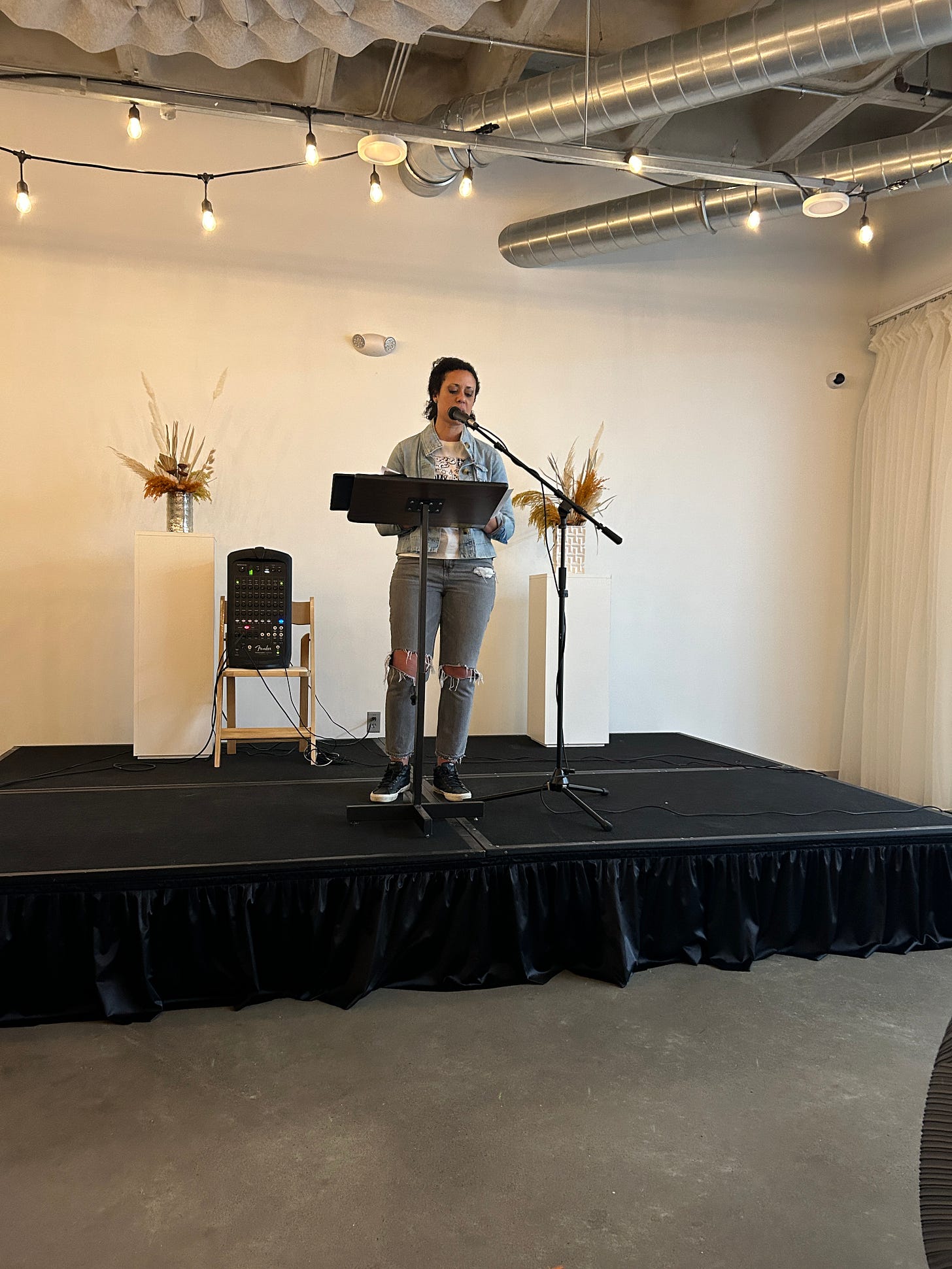
You captured so beautifully the essence of each poet’s work! I am happy this transformed your experience with poetry.
Macey, this is a beautiful piece! I am so glad you are giving poetry a second chance.